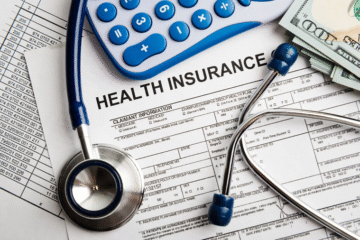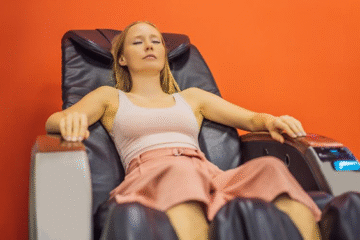Sleep Apnea: Here’s How Your Dentist Can Help You Breathe Easier

Sleep apnea is a serious but often overlooked chronic medical condition. The condition is characterized by the sudden inability to breathe while the patient is asleep. This causes the body to react to the loss of oxygen, jolt awake, and try to return to sleep. Since the body continuously stops breathing throughout the night, a person’s brain and body cannot restfully sleep which leads to fatigue and other more serious health concerns.
It can be hard to determine whether or not a patient suffers from sleep apnea without medical intervention. However, once diagnosed the sleep apnea dentist can provide treatment options to help patients breathe and sleep better. Here’s how:
Mandibular Advancement Devices
Visiting a sleep apnea dentist after a diagnosis is oftentimes the best course of action for patients who are normal in weight and only suffer from moderate sleep apnea. The dental professional will provide you with a mandibular advancement device, also known as a dental sleep device to address the condition.
These devices resemble a mouth guard but are worn exclusively for sleeping. This helps push the jaw forward which then prevents the muscle that relaxes when you sleep from collapsing and obstructing the airways. With time, the device will help strengthen the muscle so that it does not collapse, even when the device is no longer used.
Customized Devices
It is important to seek professional dental services for these devices as a mold of the mouth is needed to create the device. Ill-fitting dental sleep devices can result in jaw problems in the future.
Tongue-Retaining Devices
Another type of dental sleep device offered as a treatment option is known as the tongue-retaining device. This is less commonly used, but caters to a wider range of mouths, meaning it is not customized for every patient.
As the name suggests, the device is placed inside the mouth before sleeping and holds the tongue throughout the night. This ensures that the airway is clear and breathing is not compromised. It takes a few nights to fully adjust to this device, but after a while, it will begin to feel normal and should no longer bother your ability to fall asleep.
Affordable And Accessible
Traditional treatment options for patients with sleep apnea include Continuous Positive Airway Pressure (CPAP) machine which is expensive, bulky, and uncomfortable.
The mandibular advancement devices as sleep apnea treatment are far more cost-effective and easier to access. Even the adjustment dental sleep devices, which costs more than the regular type is far cheaper than the CPAP. They are also easier to use and bring during travel which makes them more efficient for the average person.
Constant Monitoring
The only way to find out if the dental devices are helping is to monitor your sleeping patterns. There should be a positive change after a few days. If not, or if the device does not fit properly at all, it is best to call your dentist to get them resized and adjusted to fit comfortably.
All dental devices for sleep apnea must be used every night for them to be effective. Never sleep without the device unless your doctor or dentist advises otherwise.
Sleep apnea is far more complicated that one might think, but your dentist can help! Contact Riverside Dental and talk to one of our sleep apnea dentist today.
Leave a reply
You must be logged in to post a comment.














